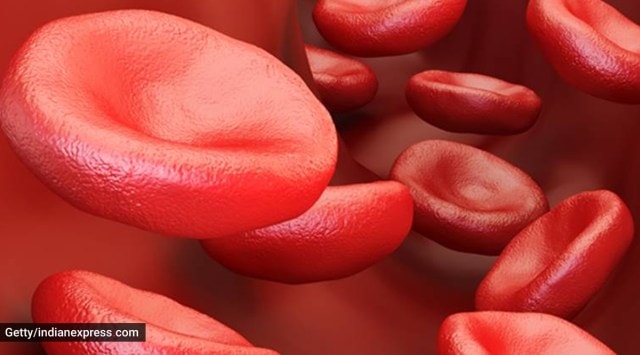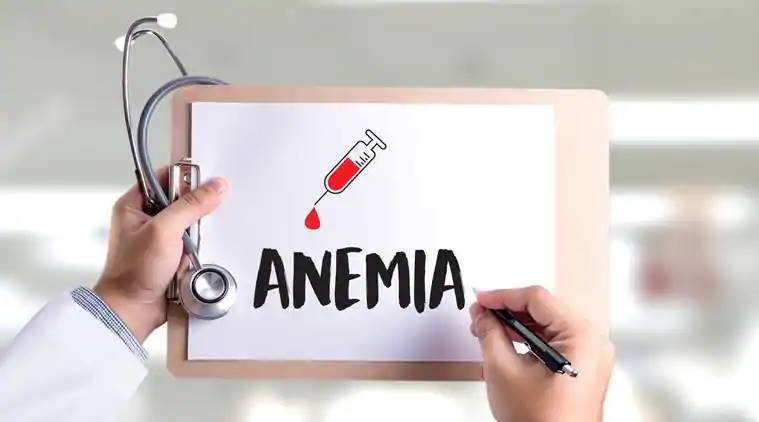- India
- International
Sickle cell anemia and Covid-19: All you need to know
"Since people of any age with sickle cell anemia may be at an increased risk of developing serious Covid-19 related symptoms, they should take extra precautions to prevent getting infected," said Dr Fahad Afzal S, Consultant Hemato-Oncologist & Stem Cell Transplant Physician, Jaslok Hospital & Research Centre
 Sickle Cell Anemia (SCA) is a common genetic disorder among Indians affecting the red blood cells. (Source: Getty Images/Thinkstock)
Sickle Cell Anemia (SCA) is a common genetic disorder among Indians affecting the red blood cells. (Source: Getty Images/Thinkstock)Sickle cell anemia is an inherited red blood cell disorder caused by a mutation in the gene responsible to make haemoglobin. The role of haemoglobin is to enable red blood cells to carry oxygen from the lungs throughout the body. Normally, the flexible and round red blood cells move easily through blood vessels. In sickle cell anemia, the red blood cells are shaped like sickles or crescent. “These cells become rigid and sticky and as a result, they can get stuck in small blood vessels which can slow down or even block the flow of blood and oxygen to parts of the body,” says Dr Fahad Afzal S, Consultant Hemato-Oncologist & Stem Cell Transplant Physician, Jaslok Hospital & Research Centre.
Symptoms usually begin from the first year of life, in the form of anemia, swelling over hands and feet, and repeated infections. As the child grows older, there can be delayed growth and episodes of severe pain (called pain crisis) over chest, abdomen, joints or even bone. “Although there is no cure for most people with sickle cell anemia, there are treatments which can effectively relieve pain and help prevent complications associated with the disease, such as stroke, blindness, life-threatening infections,” he told indianexpress.com.
 People of any age with sickle cell anemia may be at an increased risk of developing Covid-19 (Photo: Getty Images/Thinkstock)
People of any age with sickle cell anemia may be at an increased risk of developing Covid-19 (Photo: Getty Images/Thinkstock)
He further shared that according to the results of two recent studies from the USA, it was found that patients with sickle cell anemia had up to 6 times higher risk for Covid-19 related death compared to the general population. This shouldn’t come as a surprise as previous studies had shown that individuals with sickle cell anemia have worse outcomes with influenza infection when compared to others. “Moreover, most of the patients with sickle anemia have coexisting kidney, heart and lung ailments that may increase risk of morbidity and death in this population. Long-term effects of COVID-19 on patients with sickle cell anemia will be clear only with clinical studies in the future,” he explained.
Since people of any age with sickle cell anemia may be at an increased risk of developing serious Covid-19 related symptoms, they should take extra precautions to prevent getting infected. It is advisable that they stock up on essential medicines and supplies that can last for a few weeks. “These patients should be following recommended precautions such as wearing masks, washing hands regularly and social distancing. It is important that healthcare workers are aware that patients of any age with sickle cell anemia are a high-risk group, and ensure that care and treatment is provided to these patients in shortest time possible,” the expert suggested.
There is a significant overlap in symptoms of Covid-19 and those of sickle cell anemia such as fever, cough, and shortness of breath. Health care workers should test these patients for Covid and other infectious pathogens and have a low threshold for imaging. COVID-19 most commonly presents in a diffuse manner involving both lungs whereas infiltrates due to pneumonia and consolidation are often localised.

Patients should immediately consult their physician if they develop any exacerbations of symptoms. “If vaccination with Covishield is considered, health care providers should be aware of the potential for the development of thrombosis (clots) in blood vessels accompanied by low platelet counts, 1 to 4 weeks after vaccination,” he cautioned.
May 03: Latest News
- 01
- 02
- 03
- 04
- 05
























